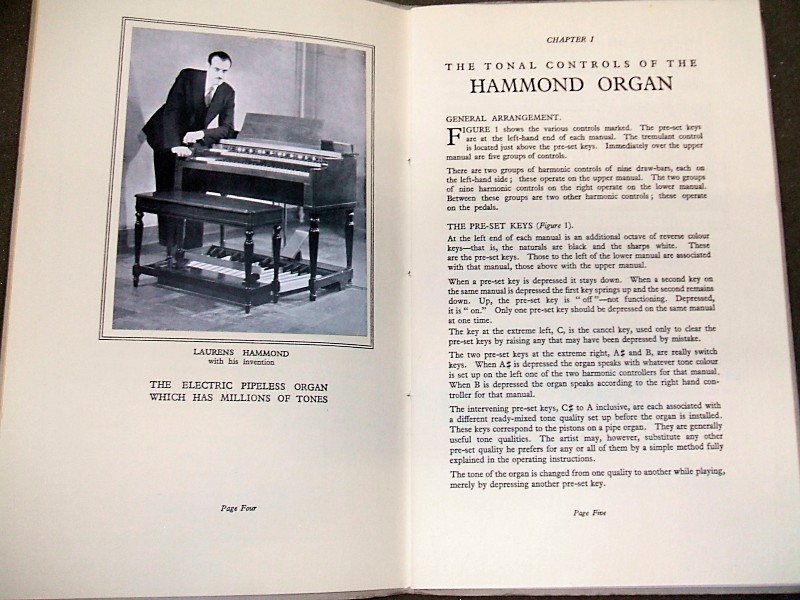Ebenezer Erskine (1680–1754), a founder of the Secession church, died in Stirling on 2 June 1754. A celebrated preacher, his opposition to patronage, when a local landowner could choose the parish minister without the approval of the people of the parish, set him against the established Church of Scotland. In 1733 Erskine joined other Scottish ministers to form the Associate Presbytery, remaining in active ministry in Stirling. By 1742 the number of seceder congregations in Scotland had grown to twenty.
New College Library holds this pamphlet from 1733, recently catalogued online as part of the Funk Cataloguing Projects, which is typical of Erskine’s sermons published during the controversial times of the early 1730s. New College Library also holds Erskine’s manuscript notebooks in the archives.
Sources
David C. Lachman, ‘Erskine, Ebenezer (1680–1754)’, Oxford Dictionary of National Biography, Oxford University Press, 2004 [http://www.oxforddnb.com/view/article/8853, accessed 27 May 2013]
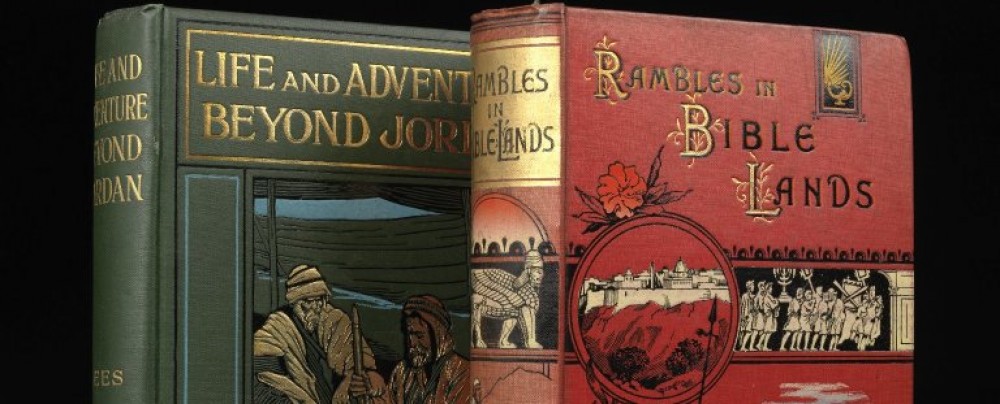
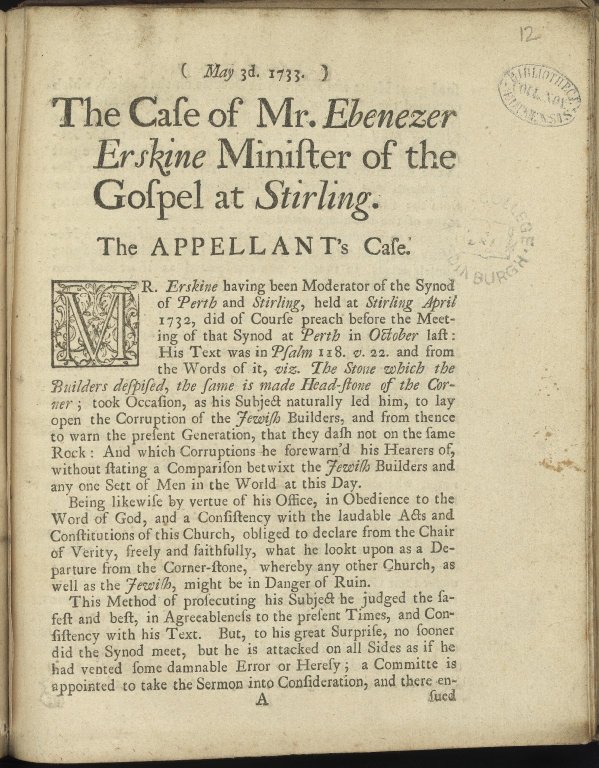
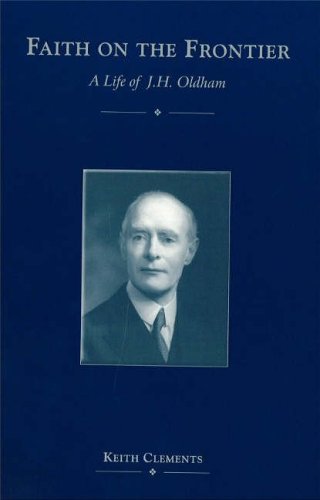

![Tractatus venerabilis Inceptoris Guilgelmi Ocka[m] de sacramento altaris. De Sacramento Altaris](http://libraryblogs.is.ed.ac.uk/newcollegelibrarian/files/2013/04/inc-13.jpg?w=227)

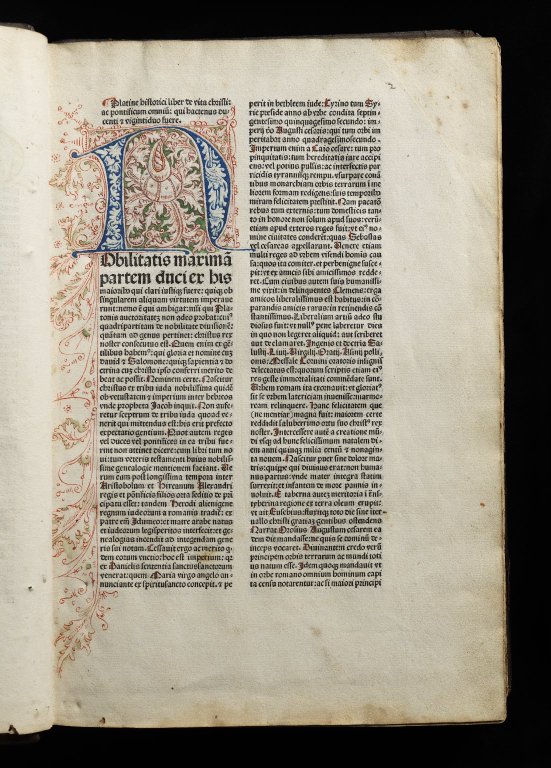



![Nazi massacres of the Jews & others : some practical proposals for immediate rescue made by the Archbishop of Canterbury and Lord Rochester in speeches on March 23rd 1943 in the House of Lords /William Temple. London : Victor Gollancz, [1943] Z.h.30/24](http://libraryblogs.is.ed.ac.uk/newcollegelibrarian/files/2012/12/6-nov-010.jpg?w=225)
